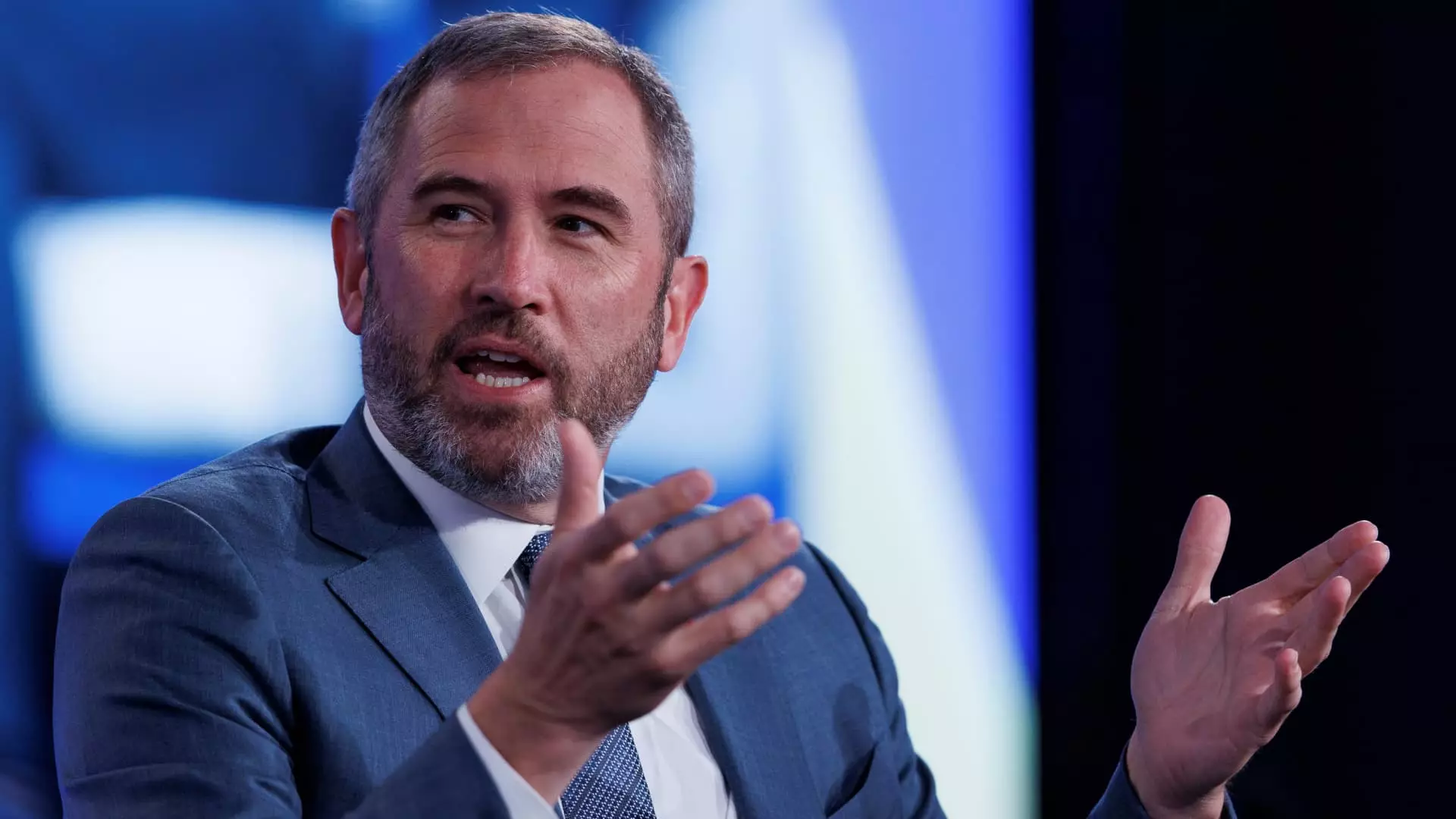The evolving landscape of cryptocurrency regulation in the United States poses both challenges and opportunities for firms operating in the space. Ripple Labs, a prominent player in the industry led by CEO Brad Garlinghouse, exemplifies this tension as it navigates a complex regulatory environment. Garlinghouse’s views on the upcoming post-election climate reflect an optimism that many in the crypto community share, following a protracted battle for clarity in the regulatory landscape.
The Regulatory Battleground: A Shifting Landscape
Garlinghouse has acknowledged a skeptical atmosphere surrounding U.S. crypto regulation but has discerned a silver lining in the electoral climate. His assertion that the upcoming election represents a pivotal moment underscores a belief that the incoming legislative body will be more receptive to cryptocurrencies and innovation than ever before. During a discussion at DC Fintech Week, he expressed confidence that the transformative potential of Congress could weave a more supportive fabric for the cryptocurrency industry, absent the punitive structures that have stifled its growth thus far.
Ripple’s global business model, largely concentrated outside of the United States—95% of its operations are international—illustrates a strategic pivot in response to regulatory uncertainty domestically. The SEC’s lawsuit against Ripple, claiming XRP as a security in 2020, exemplifies the treacherous waters U.S.-based crypto companies have to navigate. Yet, by winning a significant ruling last year, where a judge determined that XRP is not a security in the context of retail investor transactions, Ripple positioned itself as a champion for the industry amid turbulent regulatory waters.
For startups and smaller entities within the cryptocurrency ecosystem, Garlinghouse’s advice to “incorporate outside the United States” can be seen as practical guidance. As firms consider their operational strategies, the importance of diversifying jurisdiction becomes evident. The rise of “Operation Chokepoint 2.0,” a term coined to describe the negative stance of U.S. banks toward crypto entities, only reinforces the challenges posed by an unwelcoming regulatory framework. By looking towards more favorable jurisdictions, companies can better insulate themselves from stringent U.S. policies.
However, despite the challenges posed by governments, Garlinghouse maintains an optimistic outlook, believing that the crypto industry will not only survive but thrive in the years to come. This long-term perspective is essential, suggesting that temporary obstacles might serve as catalysts for a more robust regulatory framework in the future. “The industry is going to continue to thrive,” Garlinghouse stated, indicating a belief that inherent technological progress will ultimately prevail over regulatory setbacks.
As the regulatory environment becomes increasingly polarized, the approach of political figures toward cryptocurrency is generating discernible partisan sentiments. Garlinghouse’s observations regarding the contrasting approaches of the current political players reflect a growing divide among advocates of crypto. By specifically highlighting contributions made to pro-crypto political action committees and individual candidates, such as Vice President Kamala Harris, Garlinghouse showcases how financial backing is intricately tied to the future regulatory pathways for cryptocurrencies.
His comments regarding Harris’s previously muted position on crypto, juxtaposed against Donald Trump’s assertive pro-crypto stance, suggest that the direction of regulatory policies may hinge significantly on which administration prevails. Fear within the industry regarding a potential continuation of the Biden administration’s stringent policies signifies broader concerns that could impede growth and innovation. Garlinghouse views this as an ‘attack’ on the sector, emphasizing the need for an immediate shift towards more favorable policies.
Amidst this mix of skepticism and optimism, the future for Ripple and the broader crypto landscape remains assured yet uncertain. Garlinghouse’s endorsement of John Deaton, who aims to challenge crypto-critic Senator Elizabeth Warren, further underlines the necessity for advocates in the political arena who understand and support the unique implications of digital finance.
As the midterm elections approach, the influence of crypto stakeholders on political candidates could bear significant consequences on future regulatory frameworks. These elections present a pivotal opportunity for the crypto community to advocate for policies that foster innovation and support a burgeoning technology. The message is clear: while barriers persist, a tidal shift fueled by advocacy could pave the way for a more favorable environment where digital currency innovations can flourish unimpeded.
Ripple’s journey through U.S. regulatory turbulence underlines a broader narrative of resilience and adaptability in the crypto sector. The promise of a more innovation-friendly Congress, coupled with the industry’s intrinsic potential, will be critical to navigating the choppy waters ahead.

